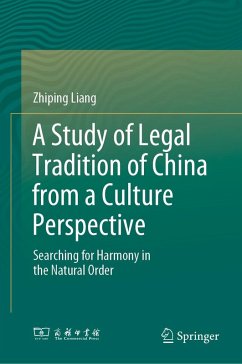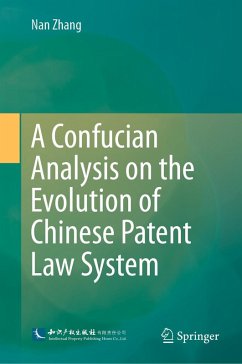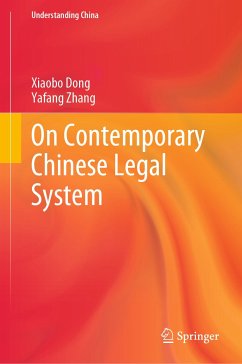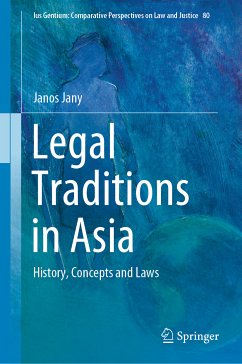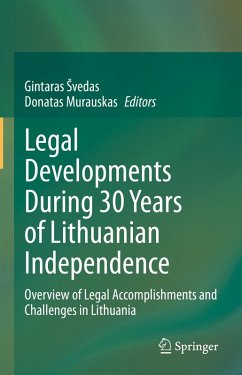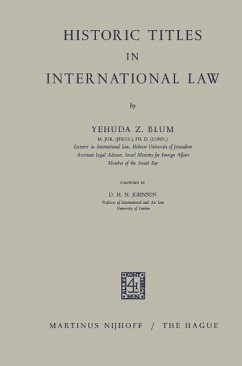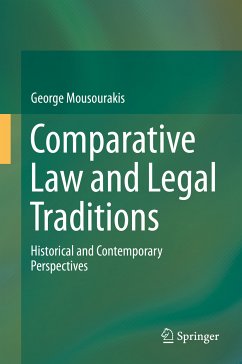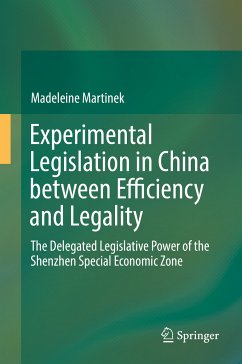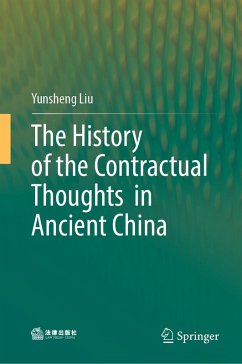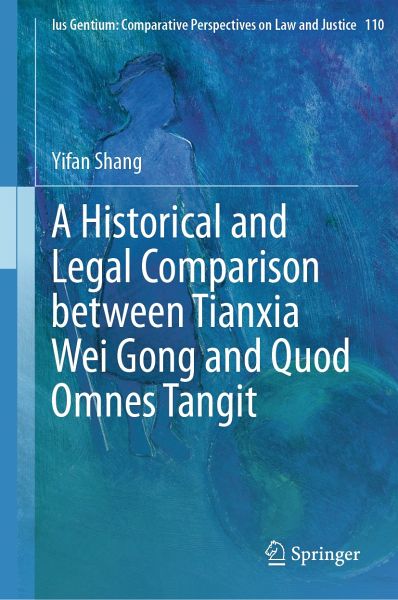
A Historical and Legal Comparison between Tianxia Wei Gong and Quod Omnes Tangit (eBook, PDF)
Versandkostenfrei!
Sofort per Download lieferbar
104,95 €
inkl. MwSt.
Weitere Ausgaben:

PAYBACK Punkte
52 °P sammeln!
This book explores the historical and legal importance of two principles, Quod Omnes Tangit, and Tianxia Wei Gong, which have played significant roles in European and Chinese political and legal history. While Quod Omnes Tangit has been thoroughly researched, Tianxia Wei Gong has not been systematically examined. This thesis fills this void and connects these two principles for the first time.Quod Omnes Tangit was initially introduced in Justinian's Codex Civil, while Tianxia Wei Gong originated from Liji, one of the books in a key series of works by Confucius. Liji is comparable to the Thora ...
This book explores the historical and legal importance of two principles, Quod Omnes Tangit, and Tianxia Wei Gong, which have played significant roles in European and Chinese political and legal history. While Quod Omnes Tangit has been thoroughly researched, Tianxia Wei Gong has not been systematically examined. This thesis fills this void and connects these two principles for the first time.
Quod Omnes Tangit was initially introduced in Justinian's Codex Civil, while Tianxia Wei Gong originated from Liji, one of the books in a key series of works by Confucius. Liji is comparable to the Thora in the Old Testament and is considered as important as law in Chinese legal history. Both principles have undergone comparable developmental processes, with scholars contributing to their reinterpretation.
This book thoroughly examines the interpretations of individual scholars, with particular attention given to Liang Qichao, who is the only one to have mentioned both Tianxia Wei Gong and Quod Omnes Tangit. The book also provides an explanation for the original discrepancies in their concepts, particularly their methodologies in distributing and legitimizing rights.
This research will be of interest to legal philosophers and historians in both the Western and Eastern worlds, legal practitioners and policymakers, and researchers seeking to explain current events and explore fundamental differences between the East and West.
Quod Omnes Tangit was initially introduced in Justinian's Codex Civil, while Tianxia Wei Gong originated from Liji, one of the books in a key series of works by Confucius. Liji is comparable to the Thora in the Old Testament and is considered as important as law in Chinese legal history. Both principles have undergone comparable developmental processes, with scholars contributing to their reinterpretation.
This book thoroughly examines the interpretations of individual scholars, with particular attention given to Liang Qichao, who is the only one to have mentioned both Tianxia Wei Gong and Quod Omnes Tangit. The book also provides an explanation for the original discrepancies in their concepts, particularly their methodologies in distributing and legitimizing rights.
This research will be of interest to legal philosophers and historians in both the Western and Eastern worlds, legal practitioners and policymakers, and researchers seeking to explain current events and explore fundamental differences between the East and West.
Dieser Download kann aus rechtlichen Gründen nur mit Rechnungsadresse in A, B, BG, CY, CZ, D, DK, EW, E, FIN, F, GR, HR, H, IRL, I, LT, L, LR, M, NL, PL, P, R, S, SLO, SK ausgeliefert werden.



